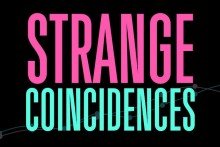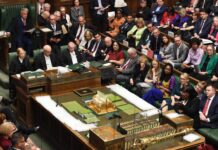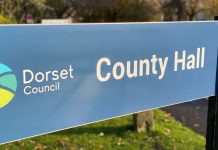A statistician will tell you to ignore any seemingly surprising event if the chance that it might happen at random is more than 1 in 20, that is 5%. A statistician will not get excited about an event unless its probability of happening at random is quite a lot less than that.
On Monday 22nd May 2017, my wife was called up for jury service. This is likely to occupy her for a week, perhaps a bit more or less. She is a particularly effective energetic supporter of our local Labour Party. In the coming election, the chance that Labour might win in our constituency is small, but in a nearby constituency the chance is much greater and she might help there. Jury service will reduce her effectiveness.
In my entire adult life, nearly half a century, I have been called for jury service just once. In her entire life, my mother was called just once. The coming general election is particularly unusual: for once in several decades, the main opposition sympathises with some basic policies significantly different from those of the current and past governments, and on current trends it seems it might win. The chance of any one person being called for jury service in the preceding two months can be estimated as about 1 divided by the number of 2-month periods in 40 years. That is 1/(6 x 40), which is less than 1 in 200, or 0.5%.
One might say, the decision to hold the election now was only taken a few months ago, after my wife was told that she would be called. News reports say that the Prime Minister took the decision recently, but the authorities think on a longer timescale. They will have been anticipating since the last general election when the next one might be, and thinking about it.
One might also say (and it is said) that the choice of jurors is entirely random. In my experience of that one particular jury, there was one slight administrative detail which suggested otherwise.
Here is another coincidence.
Within 24 hours of my wife starting her jury service, a terrorist bomb exploded and killed a lot of people in Manchester. The chance of this happening in the run-up to the election is harder to estimate, but let us try: the secret services discover and prevent perhaps half a dozen bomb plots each year. The chance of a bomb plot occurring at random in the run-up to this election might be perhaps 50%. The chance that the secret services fail to stop any one plot is perhaps about 1 in 10, perhaps rather less. They are quite good at their job, but not infallible. On the basis of these figures, it would seem that the chance of such a plot succeeding in the run-up to this election is perhaps about 1 in 20, i.e. 5%. On its own, a statistician would say this is not significant.
However, the bomb plot has not occurred on its own. It coincided with the jury summons to my wife. These two events, seemingly independent, are both likely to make it easier for the current government to be re-elected. The first constrains my wife. The second, the bomb plot, may affect public behaviour in two ways.
1: The bombing is likely to cause many voters to tend towards any perceived source of protective strength. The Conservative Party is advertising itself as just such a source.
2: The bombing is also likely to increase public aversion to terrorists.
Just in the past very few days, the mainstream media have publicised an idea that the leader of the Labour Party might have sympathised with terrorists (in Northern Ireland). That appears to be yet another coincidence. I shall not try to estimate its probablity.
From the above figures the probability of both the summons to jury service and the bombing, two events likely to help the government’s campaign for re-election, both occurring at random in this short period seems to be perhaps about 5% of 0.5%. That is 0.025%, i.e. 1 in 4000. A statistician might take notice of that.
Alan Hutchinson












